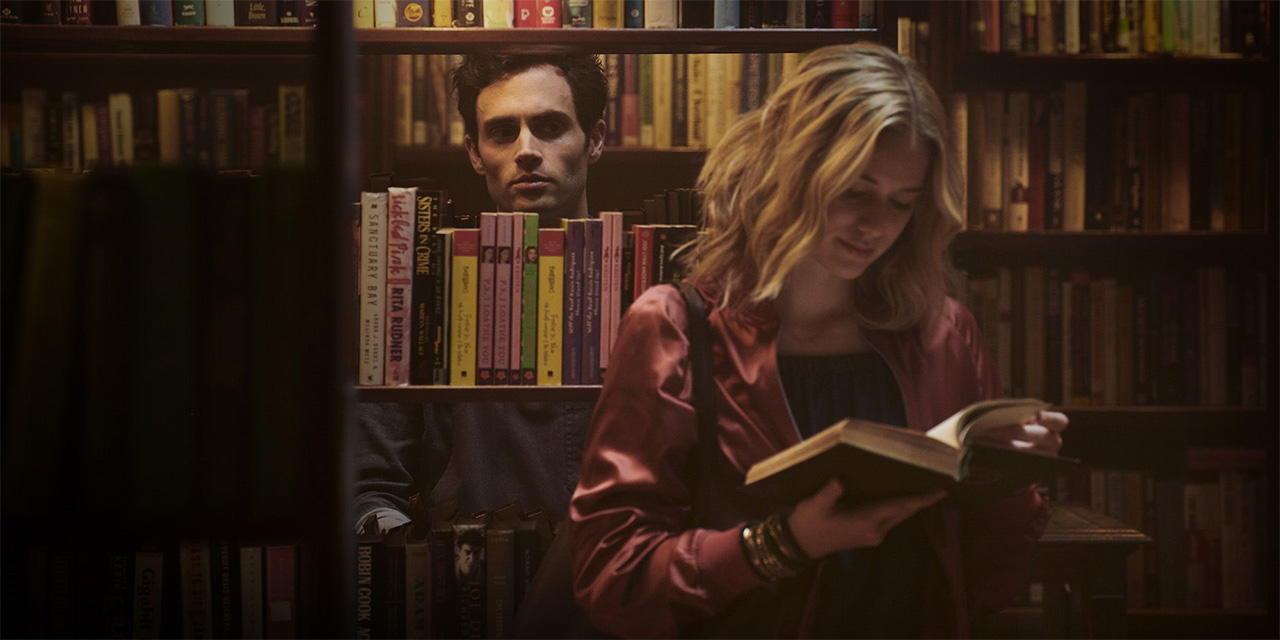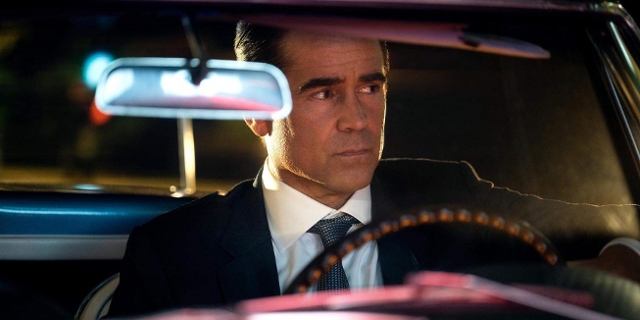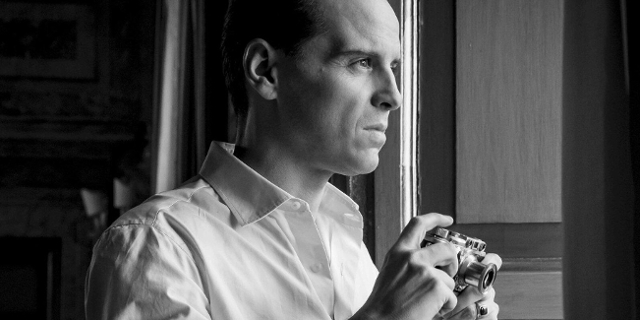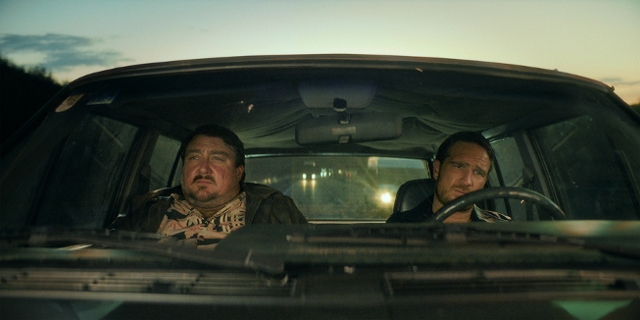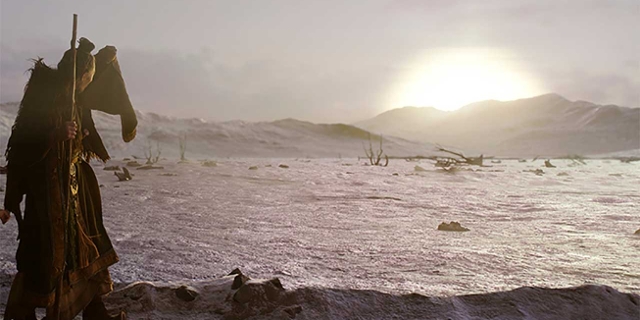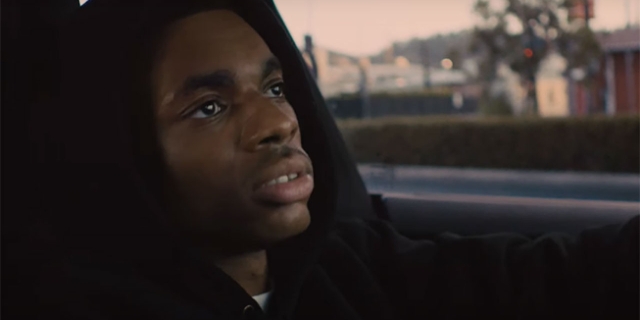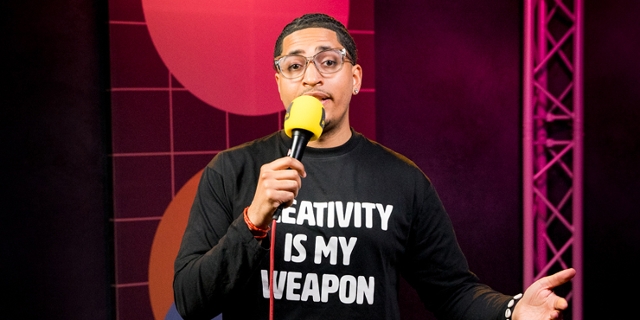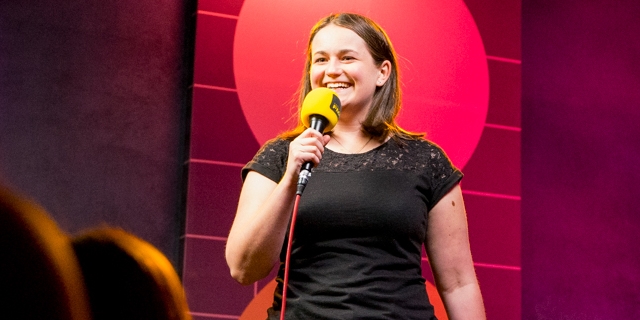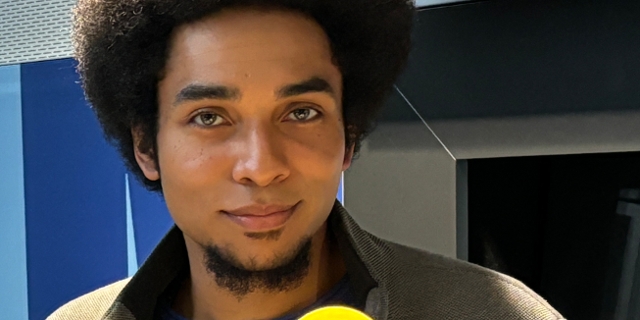Die Attraktivität von Killern
Von Conny Lee
Die aktuelle Serie „You - Du wirst mich lieben“ dreht sich um Joe Goldberg, einen Buchladenbesitzer, der sich in eine junge Frau verliebt, sie stalkt, manipuliert und Menschen aus ihrem Umfeld ermordet. Joe wird gespielt von Penn Badgley („Gossip Girl“): gebildet, gut aussehend, charmant. Frauen auf der ganzen Welt schwärmen für die Figur Joe und haben vielfach bereits auf Twitter gepostet, wie attraktiv er nicht sei. Penn Badgley reagierte auf einige dieser Tweets und wies darauf hin, dass Joe kein begehrenswerter Charakter sei und bitte nicht romantisiert werden sollte.
I’m telling u it’s ur face that does it. Ur gorgeous. I can see past that crazy shit lol https://t.co/5hry9hswnW
— Rosie (@rose_barbie_) 9. Januar 2019
But you’re supposed to see past my face TO the crazy shit! It’s the other way! The other wayyyyyyyyyyyyyyyhhyyyyggg :)
— Penn Badgley (@PennBadgley) 9. Januar 2019
Gleichzeitig zeigt der Streamingdienst Netflix auch gerade eine Doku über den Serienmörder Ted Bundy, der in den 1970ern mindestens 30 junge Frauen ermordet und vergewaltigt hat. Die Serie „Ted Bundy - Selbstporträt eines Killers“ enthält alte Videoaufnahmen und Interviews, vor allem aber Tonbandaufnahmen, in denen Ted Bundy selbst von sich, seiner Kindheit und seiner Person erzählt.
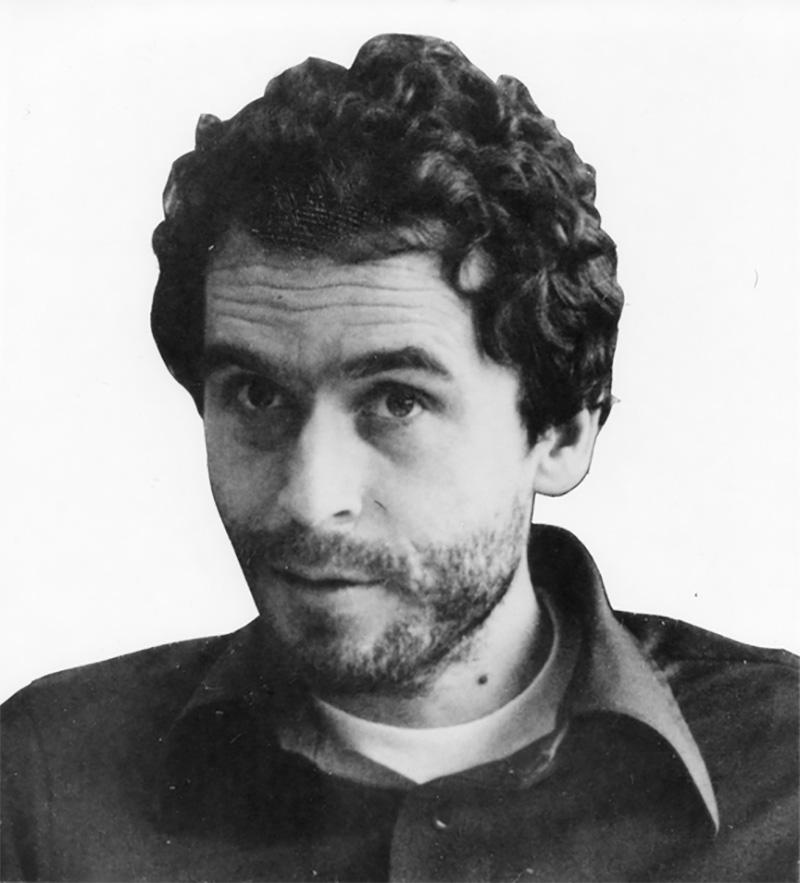
Public Domain
Ted Bundy
Die Dokumentation zeichnet das Bild eines soziopathischen, narzisstischen und geisteskranken Mannes, der Frauen tötete, um Lust zu empfinden. Trotzdem gab es aufgrund der Doku im Netz so viele Posts darüber, wie „hot“ Ted Bundy gewesen sei, dass Netflix auf Twitter schrieb:
I've seen a lot of talk about Ted Bundy’s alleged hotness and would like to gently remind everyone that there are literally THOUSANDS of hot men on the service — almost all of whom are not convicted serial murderers
— Netflix US (@netflix) 28. Januar 2019
Wie kann das sein, dass Frauen solche Männer sehen - seien sie fiktiv wie Joe oder real wie Ted Bundy - und sie attraktiv finden, oder in manchen Internetforen sogar deren Taten erklären und rechtfertigen wollen?
Tatsächlich erhalten Serienkiller und Massenmörder, die in den USA im Gefängnis sitzen, oft unzählige Liebesbriefe von Frauen. Das war bei Ted Bundy der Fall, ebenso bei Charles Manson, und ist aktuell zum Beispiel beim Boston Marathon-Bomber wieder zu beobachten.
Warum sind gerade Frauen so fasziniert von Verbrechern?
Frauen, die sich sogar auf eine Beziehung mit verurteilten Mördern einlassen, sind ein Phänomen, dem die New Yorker Autorin Sheila Isenberg ihr Buch „Women who love Men who kill“ gewidmet hat. Aktuell arbeitet sie an einem neuen Buch, in dem sie der Frage auf den Grund gehen will, warum viele Frauen so fasziniert von Verbrechern sind. Eine Studie von „Social Psychological and Personality Science“ hat ergeben, dass viel mehr Frauen True Crime-Serien schauen und -Podcasts hören als Männer. Im FM4-Interview spricht Sheila Isenberg über diese Attraktivität, die Mörder anscheinend auf manche Frauen ausstrahlen.
Conny Lee: Your book „Women who love Men who kill“ came out in 1991 and it got a lot of attention ever since, so why do you think is there such a fascination with this phenomenon?
Sheila Isenberg. I think people are always interested in things that are strange and unusual and I think that other than this one book none’s really attempted to explain why ordinary, regular women end up getting involved, falling in love with, marrying convicted murderers. Sü it seems like people wanna know why.
Now you’re working on a new book, where is that going to go?
„Women who love Men who kill“ was my first book and I wrote it because I had been a reporter and I was curious. I knew some women and I met them in the prisons when I was doing crime stories and I wanted to know why they were getting involved with those men. What could they possibly get out of it?
I interviewed about three dozen women and I kept looking for common themes because the women were so different and what I found was that all of the women had been abused in the past. Different kinds of abuse - one woman was sexually abused by her father, most of the women were abused physically by their husbands, parents of boyfriends and most of them have been psychologically abused. So I determined that for these women, the relationship was safe, which sounds kind of weird, I know, but if a man is behind bars he can’t hurt you.
So that was then. And ever since then I always get called and interviewed whenever there’s a story like this and especially around various notorious criminals who are in the news a lot get a lot of letters and attention from women.
So over the years I’ve come to realize that the book I wrote answered one question, but it’s really part of a much bigger story. It looks at why women - not men, but women - are so intensely and often fatally obsessed with outlaws and crimes. And now we’re searching the question - why are women the main consumers of true crime stories. You know, all the television shows, the movies, the podcasts: the consumers are women. So I’ll be interviewing sociologists, psychologists, criminologists and women themselves to find out what is going on. Why are women obsessed with crime and outlaws.
Let’s talk about media, which has changed a lot. There’s social platforms, on demand streaming services like Netflix. How do you see the change there in how serial killers are depicted, also in those true crime stories today?
The advent of 24hour news cycles like CNN and NSNBC - if there’s a crime, if there’s a serial killer or mass murder in this which we have very often, those 24hour news cycles will run the crime story over and over and they’ll flash the picture of the criminal. So that’s the mass media. Then it gets picked up on social media. People make videos about it and run them on Youtube. They get posted on Facebook Groups. Chris Watts has seven Facebook groups right now and each of those groups has hundreds, thousands of members. And what they’re talking on social media with this story is obsessively dissecting the crime, taking it apart and analyzing it. Not so much talking about whether he’s guilty or not, because he confessed. But on Facebook groups will talk about, „Was he really to blame, eventhough he did it?“ Another Facebook group will talk about, „What was the role his wife played in bringing him to this terrible murder?“. Another group will talk about the trial and they’ll put up trial transcripts, evidence and police reports. So the social media and the mainstream media enormously contribute to the availability of stories about criminals online and in the media. But then the question I ask in my new book „Mad, Bad and Dangerous“ is why are women so fascinated by this and not men?
There’s this series now on Netflix called „You“. Main actor Penn Badgley playing a stalker and a serial killer. He had to remind women on Twitter - I don’t know whether you heard about that - they were lusting over the character he played and he reminded them this character is a killer and a threat and not someone they should feel attracted to. Now there’s also this documentary about Ted Bundy and the Streaming Platform also had to tell people to „stop thirsting over Ted Bundy. He’s not a hot guy“. So how much of it is the media’s fault? How they put those guys up, cast attractive actors and put them in the main roles of those series.
In the Ted Bundy Film they’ve cast an attractive actor [Anm.d.Red.: Zac Afron spielt Ted Bundy im aktuellen Film „Extremely Wicked, shockingly evil and vile“] but there is another series on Netflix that I watched recently, it was a documentary and there was no attractice actor. Plus on many of those true crime shows they have documentary footage of the actual serial killer or the actual mass murderer and he’s not attractive. So I don’t think the attractiveness has to do with it. I mean, John Wayne Gacy was a Serial killer in this country and he was completely unattractive. Women were so interested in him that they sent him thousands and thousands of letters. They even published a book called „Letters to Mr. Gacy“, I have a copy of it.
So I don’t think the attractiveness really makes a difference. I think it’s the crime and the outlaws and that phenomenon that in some way psychologically and sociologically appeals to women. Right now I’m in the stage of - Why? I don’t know why. But you know I do think it has something to do with women’s role in society.
Do you think this effect of serial killers attracting women might be inspring for other men who also have a violent disposition, that this phenomenon might spread toxic masculinity?
I’m glad you brought up the term „toxic masculinity“. I mean what is masculine. Throughout american history we have normalized masculinity that’s associated with violence. We have a history in our country of outlaws, gunshooters, Cowboys, the shoot-em-up guys in the old west. And we romanticized all of them, the bad guys and the good guys, who wear their guns on their hips. And then we continued to romanticize our outlaws and our shooters and there’s a certain sense of masculinity asasociated with that.
How much of a role does the illusion play for women that they think they’d be able to „save“ or „cure“ these killers and murderers?
I know that some people have said that. Some experts say that they’re going to the relationship thinking they can cure or help the murderer. But I didn’t find that. The women I interviewd for the first book, what they basically said was, „He’s a really good person. He didn’t really mean to do this. He’s not really killer.“ They found all kinds of excuses, you know, like, „He didn’t mean to pull the trigger. He was confused.“ So I don’t see them going into it saying, „He can be saved“, they usually go into it saying, "He’s not really a bad person.
Publiziert am 20.02.2019







